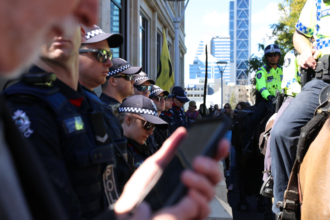Australia’s most recent federal election delivered a clear and forceful political statement: a solid rejection of Trump-style politics. Voters all around the nation made clear as they cast their ballots that polarizing policies, populist slogans, and harsh rhetoric no longer fit the vision for leadership of the majority.
Leading the center-left Labour Party, Prime Minister Anthony Albanese guaranteed a strong second term in office. Concurrent with this was conservative opposition leader Peter Dutton, who ran much of his campaign using populist tactics evocative of Donald Trump’s approach, and lost horribly. Dutton not only missed out on national success but also lost his seat in Dickson, Queensland, a constituency he had served for more than two decades.
The result transcended party preferences. It exposed a more significant change in voter attitude, one that gives pragmatic leadership top priority over political flshowmanship. The election turned into a turning point in the political history of the nation since it represented the strong rejection of Trump-style politics by the voters.
What distinguished Dutton's campaign, and where did it fail?
Several elements of Peter Dutton’s campaign resembled Donald Trump’s political manual. Strong positions on border security, aggressive speech, and a nationalistic attitude emphasizing fear-based messaging were among these. His program revolved mostly on policies aiming at immigration, including ongoing backing of offshore detention facilities.
Although this strategy might have been meant to inspire the conservative base, it was not very popular. Actually, a lot of moderate and undecided voters thought the campaign was extremist and disconnected from national interests. Dutton’s strong foreign policy posture, especially on China, and his scathing criticism of home policies generated a polarizing climate.
Dutton’s approach and program, which reflected Trump-style tactics, several political experts pointed out, probably backfired. Political analysts and former colleagues, as well as Dutton’s message, closely matched American-style populism, caught attention. Public opinion was much influenced by these parallels, which also finally brought about his downfall.
Dutton tried to separate himself from these ties toward the campaign’s close. He tried to underline his former experience as a cabinet minister while often declaring he did not know Trump personally. Still, the harm was done already. Voters stayed dubious and cast a strong electoral censure, therefore confirming Australia’s rejection of Trump-style politics.
How Would Albanese Provide a More Attractive Substitute?
Dutton’s campaign swung toward confrontation, but Albanese adopted a cool, inclusive, issues-oriented approach. He gave real-world issues including healthcare, housing affordability, education, and climate change top priority—ones that impact daily Australians. Avoiding aggressive rhetoric and offering careful, policy-driven arguments, Albanese strengthened his reputation as a steady and sympathetic leader.
Albanese also clearly distinguished his leadership approach from the populist tsunami observed elsewhere. To win people’ trust, he underlined cooperation with foreign partners and home unity. This strategy was particularly effective in the era of increasing global uncertainty, when voters more and more value dependability and skill above drama.
The campaign saw one of its turning points when Albanese was able to ignore criticism and stay focused on fixes. He kept constant messaging even in the face of popular discontent with several government offerings. His professional approach, contrasted with Dutton’s inflammatory strategies, helped to support Australia’s more general rejection of Trump-style politics and secure Labor’s triumph. Read another article on Trump’s Second Term Policies
What were the Election Results, and what consequences followed?
The outcome of the federal election has symbolic as well as clear meaning. While the Liberal National Coalition suffered significant losses, Anthony Albanese’s Labor Party obtained a substantial majority in Parliament. Particularly noteworthy was Peter Dutton’s personal loss in Dickson since it represented the end of his 24-year career and signalled a rejection of not only a leader but a political worldview.
Dutton left right away once voting closed. Though he refrained from considering the consequences of his campaign approach, he admitted in his concession address the extent of the loss. Political watchers, however, quickly saw the result as a public mandate against populist ideas.
This election was more than just a normal change of political power. It pointed to a cultural and ideological turnaround. Australians supported a more inclusive, policy-driven vision for their nation and turned against fear-based messaging. Particularly among younger Australians and first-time voters, the high voter participation revealed even more the taste for stability and change.
Nowadays, the rejection of Trump-style politics defines this election and serves as a guide for the next campaigns. It creates a standard not only for Australia but also for other democracies, assessing the repercussions and potency of embracing populist speech.
From this change, what lessons might political leaders pick?
Modern voters prioritize honesty, policy clarity, and responsible leadership above spectacle and discord. For leaders and political strategists, this election presents a crucial lesson in public opinion. Depending on imported political models—especially those centered on conflict and confrontation—you run the risk of alienating the very people who need to succeed.
Rather, campaigns emphasizing real-world issues, provide careful answers, and create coalitions between many groups are considerably more likely to be successful. Leadership has to change with the aspirations of society; this election shows that Australians want outcomes rather than just rhetoric.
For Peter Dutton, the loss might mark the personal end of his political career. For the country, nevertheless, it represents a hopeful break from policies anchored in divisiveness and a move toward a more constructive political future.
Final Notes
Already under analysis as a textbook example of public opposition to populism is Australia’s 2025 federal election. Strong rejection of Trump-style politics by the voters was not limited to one party or leader; rather, it was a clear path toward integrity, pragmatism, and unity.
Australia now provides a model for how democratic institutions could reject radicalism and reward competent government as the globe watches. The lesson is rather strong: voters prefer leaders who solve problems, not magnify them.








